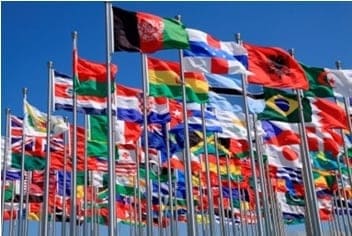Being Bilingual

As the world becomes increasingly interconnected, languages and cultures are coming together from across the globe, and are playing a crucial role in areas such as business and international relations. Learning and knowing multiple languages, in other words being bilingual, can provide a plethora of benefits. Instilling a second, or even third, language in a child at a young age, can work to spur lifelong success. There are two areas in which children who know multiple languages see benefits: in knowledge, and career success.
First, an article from the New York Times outlines ways in which bilinguals are simply smarter. Knowing multiple languages improves cognitive skills, and even has the potential to shield against brain diseases, such as dementia, later in life. Evidence shows that in a bilingual’s brain, both languages are constantly at work, resulting in an increase in the brain’s ability to resolve internal conflicts, strengthening cognitive skill. The article cites a 2004 study in which bilingual and monolingual preschoolers were tasked with sorting blue circles and red squares into their respective bins, for sorting and organization. The result? The bilinguals not only sorted the shapes by color faster, but also placed them in their appropriate bins much faster than the monolinguals. The article summarizes that studies like these are indicative of a larger picture. Bilinguals have a “heightened ability to monitor the environment”, stemming from having to switch languages often. Due to this heightened ability, bilinguals are more adept at analyzing, solving, and comprehending issues much faster than monolinguals.
The benefits of being bilingual extends beyond childhood. The article cites a recent study conducted by the University of California, San Diego, involving 44 elderly Spanish-English bilinguals. The researchers found that those with a high degree of bilingualism, resulting from a high proficiency in each language, were more resistant than monolinguals to onset dementia and Alzheimer’s disease. Learning multiple languages, in addition to making one smarter, can also work to prevent some of the world’s most devastating diseases. To put it simply, the benefits of being bilingual are immense.
Second, knowing multiple languages can be the pathway to a successful career, and ultimately, a successful life. Since the world is now more interconnected than ever, interaction with different peoples and cultures is much more common than it was a hundred years ago. Therefore, knowing how to interact with a wider range of people can galvanize one’s ability to not only get a job, but be prosperous in their occupation. According to a study by the University of Florida, Hispanics who are fluent in both English and Spanish can earn almost $7,000 more than those who only speak English. Similarly, bilinguals in the U.S. earn 7 percent more than monolinguals. Babbel, an online language learning program, articulates that speaking more than one language opens up career opportunities that are unavailable to monolinguals, such as jobs as translators, and in the education and healthcare sector. Financially, and according to Salary.com, bilingual employees can make between 5 and 20 percent more per hour than monolingual employees. Learning another language is one important key to occupational success.


